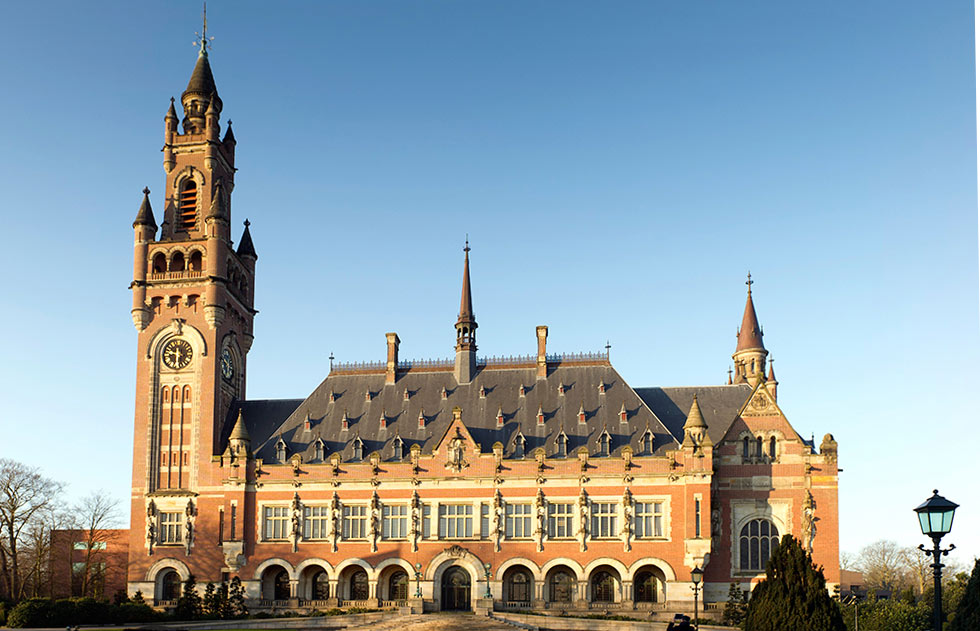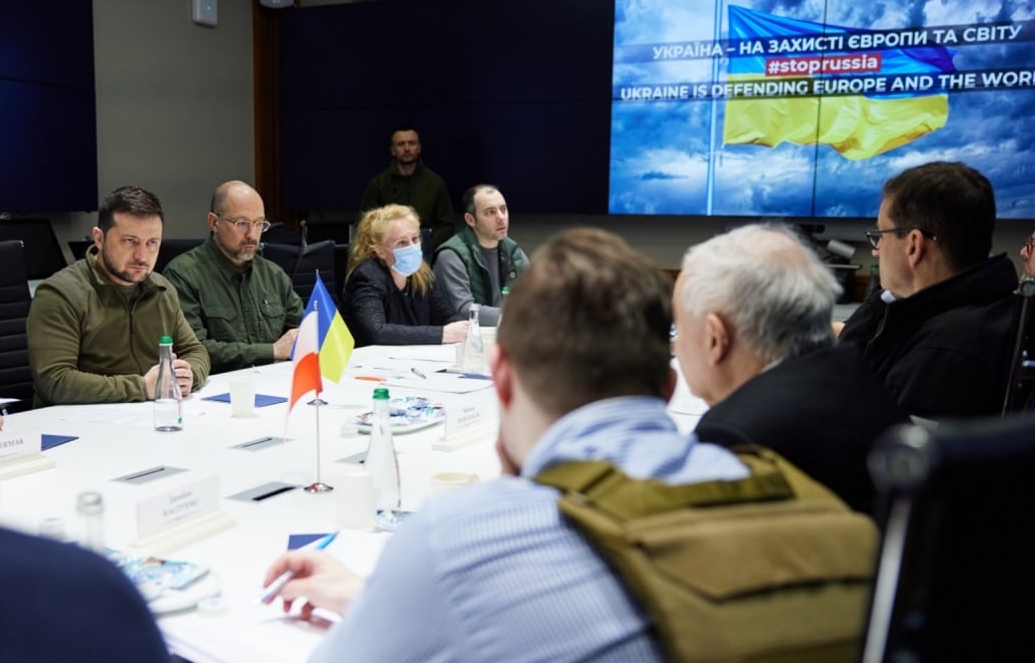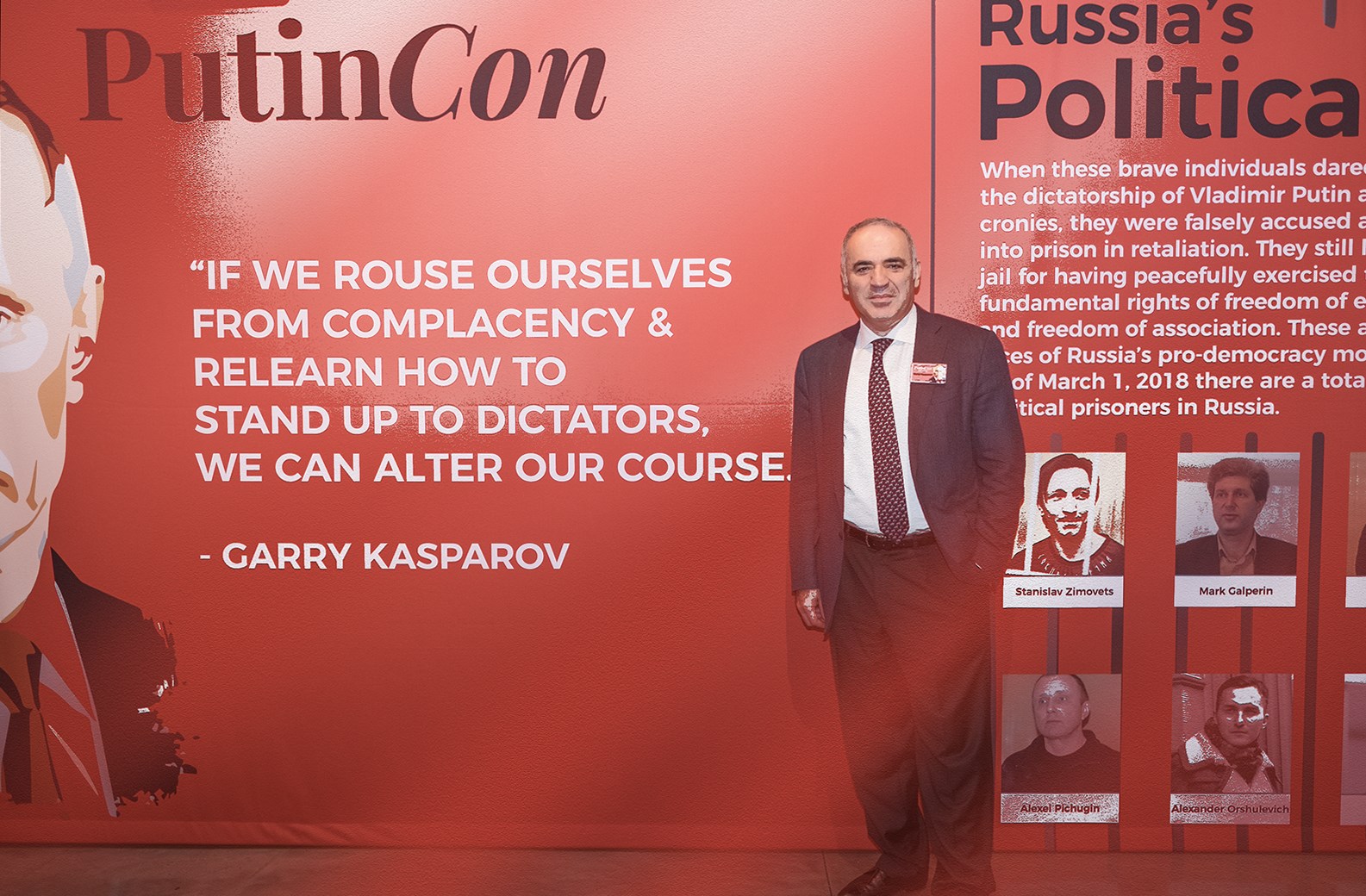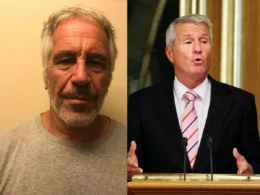This is a fourth article in the analytical series dealing with a long-term paradigm-changing transformation in the European (and global) political landscape driven by Russia’s war in Ukraine by Amanda-Jane Eddleston.
The earlier articles in the series are available here:
- War in Ukraine has rewritten Germany’s political ideology
- 1 March 2022 marked the end of “neutrality” in Europe.
- From Brexit to EU-kraine: 21st-century European unity relies on solidarity of former Soviet states
The International Court of Justice

On Wednesday, March 16th, backed by an overwhelming majority ruling of thirteen votes to two, The International Court of Justice—the judicial arm of The United Nations situated at The Hague—ordered Russia to cease its illegal invasion of Ukraine.
The court declared that it was “not in possession of evidence substantiating” Russian allegations of genocide on Ukrainian territory, a key pretext cited by Russia as justification of the war it is currently waging against Ukraine.
“The Russian Federation shall immediately suspend military operations that it commenced on 24 February 2022 in the territory of Ukraine,” the Court ordered, and it specified that, under the Charter of the United Nations, such rulings are binding and “create international legal obligations for any party to whom the provisional measures are addressed.”
The ruling comes eighteen days after Ukraine submitted an urgent appeal to the Court.
Ukrainian President Volodymyr Zelenskyy hailed the ruling as a “complete victory” for Ukraine. Declaring that Russia had been “ordered to immediately stop the invasion,” he cited that directives from the International Court of Justice are “binding under international law.”
While legality and legitimacy may stand on the side of the victor, rulings and words fall short of the north-eastern city of Chernihiv where, according to a statement on Wednesday by the US embassy, “Russian forces shot and killed 10 people standing in line for bread.”
The words also do not protect the port city of Mariupol, where, according to reports, more than 500 patients and medical staff in the Regional Hospital of Intensive Care are currently being held hostage by Russian forces.
Bombing hospitals and maternity wards in Ukraine: a brutal „innovation“ of Russian occupying forces
The Council of Europe
The Russian Federation is excluded from the Council of Europehttps://t.co/dVUE8W5Rnd
— Council of Europe (@coe) March 16, 2022
Wednesday’s ruling by the ICJ was not the only discrepancy between legally-resolute declarations and unenforceable consequences which has occurred in the midst of the Russo-Ukrainian War. Also on Wednesday, the Council of Europe moved to officially expel Russia from its ranks. Created in 1949, the Council is the European continent’s preeminent institution of human rights, and it was forged in the aftermath of the Second World War with the express purpose of preventing conflict and bloodshed from returning to the European landscape. Having drafted the European Convention on Human Rights the following year, the Council established the European Court of Human Rights as its instrument of enforcement in 1959. Russia was admitted as a member in 1996.
Stating that “the Russian Federation ceases to be a member of the Council of Europe as from today, after 26 years of membership,” the Council finalized the expulsion following a unanimous vote of a resolution which decreed that
The previous day, the Russian Federation had announced its intention to withdraw from the Council as of 31 December 2022, and in an interview following the expulsion, Russian Foreign Minister Lavrov accused the institution of being “a tool for anti-Russian policy.” The Council had previously stripped the Russian Federation of its voting rights in 2014, following Russia’s illegal annexation of Crimea, and on March 3rd of this year, it moved to suspend Russia from a full membership role (an act which still mandated Russia’s compliance with the tenets of the Convention).
The effect of full expulsion, however, eliminates this compliance. While such a definitive step affirms, on principle, the rectitude of the Council’s core mission, it removes Russia from beyond the Council’s sphere of legal jurisdiction, thus permitting the Russian government to operate entirely outside the remit of the continent’s human rights doctrine and decrees.
The United States Senate
A day earlier, on Tuesday night, the United States Senate unanimously passed a resolution condemning
“the ongoing violence, including war crimes, crimes against humanity, and systematic human rights abuses being carried out by the Russian Armed Forces and their proxies and President Putin’s military commanders, at the direction of President Vladimir Putin.”
Citing the United Nations Charter, the Universal Declaration of Human Rights, The International Criminal Court, and the 1949 Geneva Convention, the Senate resolution began by
It continued by calling on the global community to petition the International Criminal Court “or other appropriate international tribunal to take any appropriate steps to investigate war crimes and crimes against humanity committed” by the aforementioned parties.
The International Criminal Court
At the beginning of March, The International Criminal Court opened an active investigation of allegations of war crimes, crimes against humanity, or acts of genocide that have been committed in Ukraine.
The court received referrals from 41 countries requesting the investigation, and the time span included in the inquiry encompasses the last nine years, stretching back to February 2013 (thus predating the 2014 forced annexation of Crimea by Russian forces).
“With an active investigation now underway, I repeat my call to all those engaged in hostilities in Ukraine to adhere strictly to the applicable rules of international humanitarian law,” ICC Chief Prosecutor Karim Khan stipulated in a statement earlier this month. “No individual in the Ukraine situation has a license to commit crimes within the jurisdiction of the International Court.”
Visit to Kyiv
It is here, in war-torn Kyiv, that history is being made. It is here, that freedom fights against the world of tyranny. It is here that the future of us all hangs in the balance. EU supports UA, which can count on the help of its friends - we brought this message to Kyiv today. pic.twitter.com/Us7k9xTq5f
— Mateusz Morawiecki (@MorawieckiM) March 15, 2022
On Tuesday, President Zelenskyy welcomed the Prime Ministers of Poland, Slovenia, and the Czech Republic to Kyiv, just hours before the city entered a two–day lockdown. The capital has been under heavy shelling and bombardment from Russian troops, and the dangerous visit was a grimly resolute show of unwavering solidarity with Ukraine.
In a press conference following the meeting, Czech Prime Minister Petr Fiala pledged to the Ukrainian people:
While that message was, according to the Prime Ministers, transmitted from the upper echelons of Brussels, several sources recorded varying degrees of ruffled feathers within EU inner circles.
Afterward, an EU official was careful to stress that the trip was "coordinated" with European Commission President Ursula von der Leyen and European Council President Charles Michel but was not in any way officially mandated.
During the visit, the Polish deputy premier, Jarosław Kaczyński, suggested an informal proposal involving a formation of UN peacekeeping deployment to Ukraine. The idea was immediately shut down back in Brussels.
“I’m afraid we’re still in too early stages to talk about that,” responded the Dutch Defense Minister, Kajsa Ollongren. “First we have to have a ceasefire. We have to see a withdrawal from Russia. There has to be some kind of agreement between Ukraine and Russia, and I think the talks are still going on.”
On 25 February, for example, Russia vetoed a Security Council resolution demanding the cessation of its invasion of Ukraine and the immediate withdrawal of its troops.
While the politicians were in Kyiv, Polish Prime Minister Morawiecki emphasized the magnitude of the threat to Ukraine’s existence, affirming,
Recognizing the strength of the solidarity, President Zelenskyy christened the visit a “powerful testimony of support,” and in a final tweet, Prime Minister Fiala reassured the Ukrainian nation that the “aim of the visit [was] to express the European Union’s unequivocal support for Ukraine and its freedom and independence.”
Underscoring the practical element of support, Slovenian Prime Minister Janša confirmed that Slovenia strongly endorsed EU candidacy status for Ukraine, and he emphasized: “that our families are prepared to defend Ukraine and to support Ukraine.”
An Accelerated EU Membership
While they may be considered part of the (extended) family, should Ukrainian citizens ever feel uncertain as to where exactly they stand in regards to their legal rights, or under what protections they reside in the modern world governed by an internationally recognized rule of law, they need look no further than to the EU summit which was held last week in Versailles. There, the 27-member bloc verbally recognized the “tectonic shift in European history” which had occurred in the preceding weeks following Russia’s declaration of war, and the Union swore to “strengthen [its] bonds and deepen [its] partnership” with the besieged nation of Ukraine.
What precise form that future bond would take was not legally clarified during the summit, however, and calls by Estonia, Hungary, Latvia, Lithuania, and Poland to recognize a specially-accelerated Ukrainian membership candidacy to the Union failed, being blocked by France, Germany, the Netherlands, and Spain:
- Dutch Prime Minister Mark Rutte informed reporters that such a process would never occur because “[a]ll countries in the western part of Europe that I speak to say that you shouldn’t try to have a fast-track procedure or accelerated accession process.”
- German Chancellor Olaf Scholz remarked that the EU was not prepared for enlargement at this time.
- French President Emmanuel Macron was even blunter, declaring, “The answer is no.” He sought to soften the blow, however, by suggesting the path to candidacy was indeed theoretically open. “Should we close the door and say never, it would be unfair,” he conceded, politely.
Ukrainians can rest assured that posterity will record the moral rectitude of the rule of law processes which have vindicated their cases by the UN’s International Court of Justice, the United States Congress, the International Criminal Court, The European Council, and by a sizeable majority of European Union member states. Those rulings and kind sentiments may stand as the last testament and legacy of what was once the inviolable sovereignty of the nation-state of Ukraine.
Related:
- International Court of Justice orders Russia to stop war in Ukraine
- Ukraine vs Russia at the ICJ: It is not Ukraine commiting genocide, but Russia committing war crimes in Ukraine
- ICJ examines Ukraine’s case regarding Russia’s false pretext of “genocide” to invade Ukraine
- From Brexit to EU-kraine: 21st-century European unity relies on solidarity of former Soviet states
- Support for NATO, EU, and Zelenskyy skyrockets after Russian invasion of Ukraine
- 1 March 2022 marked the end of “neutrality” in Europe
- “Finlandization” was malignant for Finland and might be even worse for Ukraine
- War in Ukraine has rewritten Germany’s political ideology
- A “Stockholm syndrome” with long roots: experts explain how to counter Russian influence in Germany
- Demands to sanction Putin’s German agents of influence as Chancellor Scholtz visits Ukraine
- Germany exports dual-use products to Russia despite EU sanctions, beefing up Russian military
- German security assistance to Ukraine perpetually on hold
- Why does Germany refuse to export arms to Ukraine?





